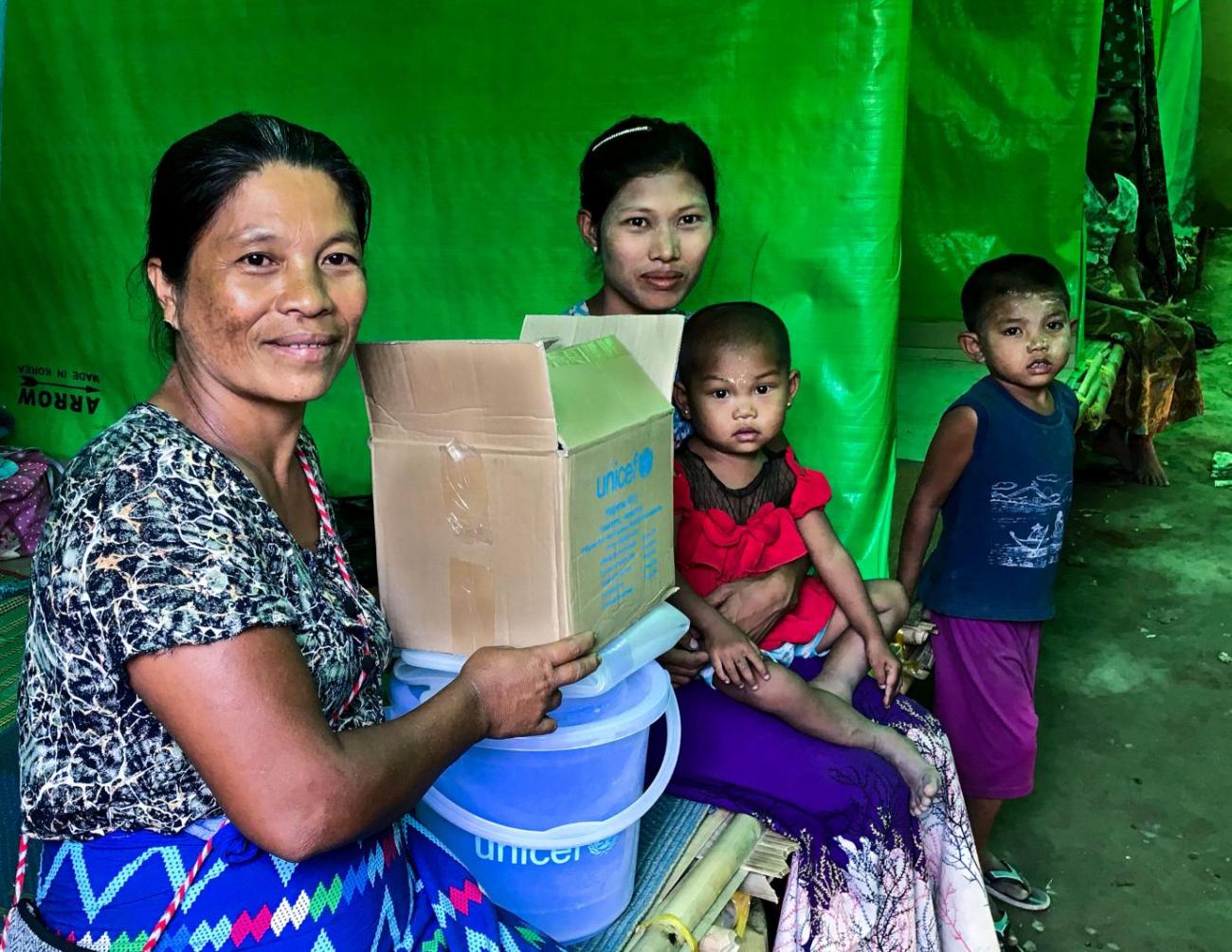Daw Hla Thein Phyu and her family, along with 118 other families, have been living in Thay Kan Monastery in Minbya Township, Rakhine State, since July 2019 when fighting between the Arakan Army and the Myanmar military displaced them from their homes in Lat Khoke Village twenty kilometres away. The conflict, which began at the end of 2018, shows no signs of ending.
There is no Internet access at the monastery, so this group of vulnerable people has low awareness of the current coronavirus disease 2019 (COVID-19) global pandemic.
UNICEF is providing life-saving interventions to internally displaced people in camps in Rakhine State where needs and challenges exist, particularly around water, sanitation and hygiene, ‘WASH’.
“During the rapid WASH response in Minbya Township, UNICEF distributed hygiene items, soaps and sanitary pads to over 731 households. Eighteen semi-permanent latrines have been constructed and community hygiene awareness sessions are being held, including sanitation on COVID-19 emphasising the importance of washing hands with soap,” explained Kyaw Thet, UNICEF WASH Officer in Rakhine State.
“We are relieved and thankful that we have enough latrines and sanitary ware,” said Daw Hla Thein Phyu.
By March 2020, UNICEF, directly and with partners, has distributed over 23,510 hygiene items to benefit more 50,000 people in Rakhine State. Over 130 latrines have been constructed and another 390 latrines are underway.
“We want to ensure that all woman and children are able to receive immediate assistance during this difficult time. In particular, we are focusing on good hygiene practices. Hand washing with soap is critical for children’s health and development,” assured UNICEF WASH Programme Specialist in Myanmar Kris Cahyanto,
The Office of US Foreign Disaster Assistance, the Government of Japan and UNOCHA’s Central Emergency Response Fund are key supporters of UNICEF Myanmar’s WASH activities in Rakhine State.





